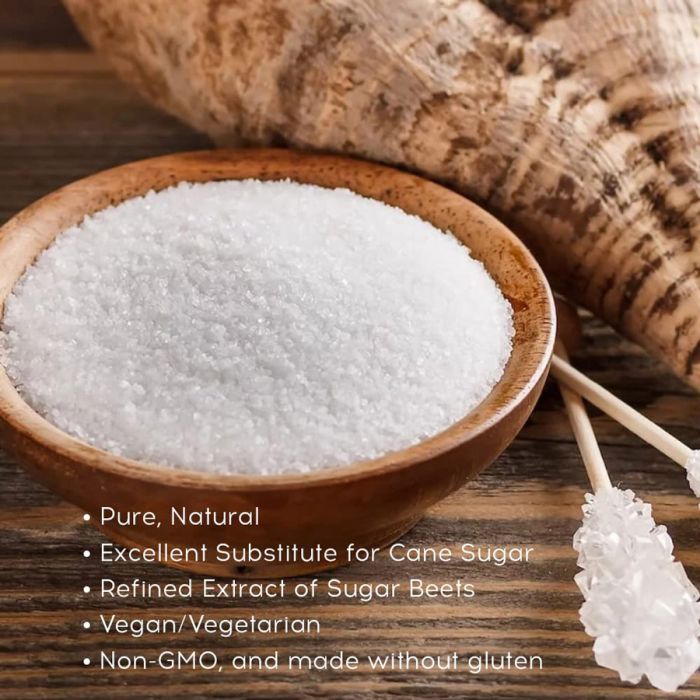A key factor in the beet sugar vs cane sugar debate is how each type impacts culinary results.
A key factor in the beet sugar vs cane sugar debate is how each type impacts culinary results.
Blog Article
Exploring the Distinctions in operation and Advantages Between Beet Sugar Vs Cane Sugar
In the cooking world, the selection in between beet sugar and cane sugar is not simply concerning sweetness yet entails a nuanced consideration of flavor, application, and influence. While both sugars originate from different plants, each undertakes unique production processes that subtly influence their characteristics and viability for numerous meals. As chefs and customers increasingly prioritize both the environmental and flavor profiles of their components, recognizing these differences becomes important. This exploration supplies insight right into exactly how each sugar kind can best enhance cooking creations.
Beginnings and Manufacturing Processes of Beet and Cane Sugar

Cane sugar, on the various other hand, originates from the sugarcane plant, an exotic lawn belonging to Southeast Asia now grown in tropical zones worldwide. The production of cane sugar begins with the harvesting of cane stalks, which are crushed to release the juice. This juice is then boiled to concentrate it, after which it is spun in centrifuges to produce raw sugar crystals. These crystals are further improved to produce the white sugar frequently offered in stores.

Nutritional Material and Health And Wellness Considerations

When contrasting the dietary material of beet sugar and cane sugar, it comes to be apparent that both types essentially give the very same calorie values, with about 16 calories per teaspoon and no considerable nutrient variety. Both sugars, when eaten in excess, can contribute to raised blood glucose degrees, a threat element for diabetic issues and various other metabolic disorders. From a wellness perspective, moderating consumption of any type of sugar, whether from beet or cane, is recommended to stay clear of these prospective adverse results on health.
Flavor Profiles and Culinary Applications
Regardless of their similar chemical frameworks, why not check here beet sugar and cane sugar differ discreetly in taste, which can influence their usage in different cooking contexts. Cane sugar usually carries a tip of molasses, also in its refined type, providing a cozy, caramel-like touch that boosts baked goods, coffee, and chocolate-based recipes. On the various other hand, beet sugar is identified by its extremely improved, neutral taste, making it a versatile sugar that does not alter the taste profiles of dishes.
Environmental Influence and Sustainability
While both beet and cane sugars are acquired from plants, their ecological impacts vary dramatically due to the distinct approaches of cultivation and processing required for every. Sugar beet cultivation commonly entails comprehensive automation, which can raise nonrenewable fuel source intake and carbon discharges. Beets can be grown in cooler climates and require much less irrigation, possibly reducing water use contrasted to sugarcane. Sugarcane, on the various other hand, is usually grown in tropical areas where it counts heavily on irrigation and a much longer growing duration, boosting its water impact.
Furthermore, the these details processing of sugarcane commonly creates a significant quantity of waste, consisting of bagasse, which, although functional as biofuel, regularly adds to air contamination if burned inefficiently. Sugar beet handling makes use of more of the raw products, leading to much less waste. Both industries deal with difficulties in decreasing their ecological footprints, but continuous developments in farming techniques and waste management are intending to boost sustainability.
Economic Variables Influencing the Sugar Market
The economic characteristics of the sugar market are significantly influenced by global market demands and profession policies. In regions where sugarcane or sugar beet production is subsidized, manufacturers might have an economic benefit that allows them to offer reduced rates on the worldwide market.
Furthermore, changes in worldwide demand for sugar, affected by nutritional fads and industrial use in food, straight influence costs and manufacturing levels. beet sugar vs cane sugar. Climate condition additionally play a crucial function, as they can substantially influence plant returns pop over to this web-site and, as a result, the supply chain. This irregularity introduces a degree of economic unpredictability that can result in financial investment volatility in sugar production fields, influencing decisions from growing to market technique
Verdict
Finally, both beet and cane sugar have unique top qualities that suit different culinary requirements. While cane sugar conveys an abundant taste ideal for improving baked items, beet sugar's nonpartisanship is ideal for lighter meals. Nutritional resemblances regardless of, their distinct manufacturing procedures and environmental impacts add complexity to the selection between them. Thus, recognizing these distinctions aids cooks and consumers make notified choices that line up with their health, cooking, and honest preferences.
Report this page